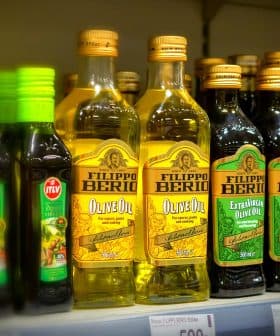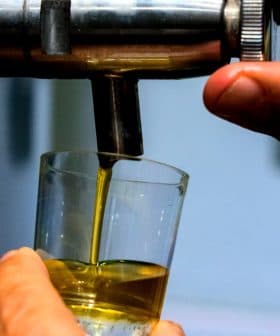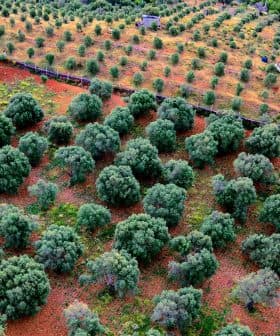Spain Seeks Self-Regulation for Olive Oil Sector
Spain's Ministry of Agriculture, Fisheries and Food has asked the European Union whether its olive oil sector can self-regulate. Advocates hope the measure will stabilize olive oil prices.
 Photo courtesy of Ministry of Agriculture, Fisheries and Food
Photo courtesy of Ministry of Agriculture, Fisheries and FoodSpain is seeking approval from the European Union for self-regulation measures in the olive oil industry to stabilize the market under the new Common Agricultural Policy, with discussions set to take place at the next Council of Ministers of Agriculture summit in Luxembourg. The measures would allow Spain’s Interprofessional Olive Oil Organization to control the amount of olive oil available on the market and store surplus oil to prevent price drops caused by oversupply.
Spain is seeking assurances from the European Union that self-regulation measures intended to stabilize the country’s domestic olive oil market will be legal within the framework of the future Common Agricultural Policy (CAP), which comes into force in 2020.
The measures would be similar to those that already exist in the wine industry and will be discussed at the European Union’s next Council of Ministers of Agriculture summit, in Luxembourg.
It is vital that the (Interprofessional’s) measure is mandatory because, otherwise, the objective pursued will not be achieved, which is nothing other than to stabilize the markets and avoid the price swings.
The self-regulation measures would allow Spain’s Interprofessional Olive Oil Organization to control how much olive oil is available on the market across the country. Surplus olive oil would be stored appropriately and could be introduced to the market if demand were to rise higher than the current supply.
“Our commitment is that the olive oil sector has a measure of this type,” Fernando Miranda, Spain’s Secretary General of Agriculture, said. “[To stabilize] long-term prices in the sector, markets and domestic consumption.”
See Also:Olive Oil PricesMany olive oil industry analysts in Spain have attributed the unusually low prices for oil to a current supply that has far outpaced demand. Advocates of the measures say that they would prevent the kind of severe price drops that have led to recent protests in Jaén.
“It is a tool demanded by the sector,” a spokesperson from Spain’s Ministry of Agriculture, Fisheries and Food, said, adding that the measures could be implemented in time for the start of the 2019/20 harvest season.
Under current E.U. legislation producer organizations and their associations are permitted to come to agreements on how much olive oil to allow into the market as well as store. These agreements on regulating the olive oil supply tend to be local and vary greatly from one producer organization to the next.
This lack of uniformity is seen as an ineffective way to regulate the overall market, which the Interprofessional sees as necessary to positively influence prices.
“While some producers withdraw product from the market, others [who did not have to do so] could benefit from the recovery of prices,” Cristóbal Gallego Martínez, the president of the Council of Olive Oil Cooperatives of Andalusia, said. “It is essential to enforce the measure so that it has its effects on the market and the sector as a whole.”
“It is vital that the [Interprofessional’s] measure is mandatory because, otherwise, the objective pursued will not be achieved, which is nothing other than to stabilize the markets and avoid the price swings,” Gallego Martínez added.
Several of Spain’s olive oil organizations met in Jaén earlier this week to discuss the idea of self-regulation. The organizations all unanimously agreed that self-regulation was the way forward, but did not necessarily agree on how it should be implemented.
“For now, I can tell you that the industry does not agree with modifying the formation of prices, through supply and demand,” Rafael Pico Lapuente, the director of the Spanish Association of Olive Oil Exporting, Industry and Commerce (Asoliva), told Olive Oil Times.
The Interprofessional and Spain’s many other olive oil organizations will need to wait until the European Commission rules on whether the proposed self-regulation measures are legal. Once the decision is made, the sector can begin the process of determining how the measures will be implemented.









